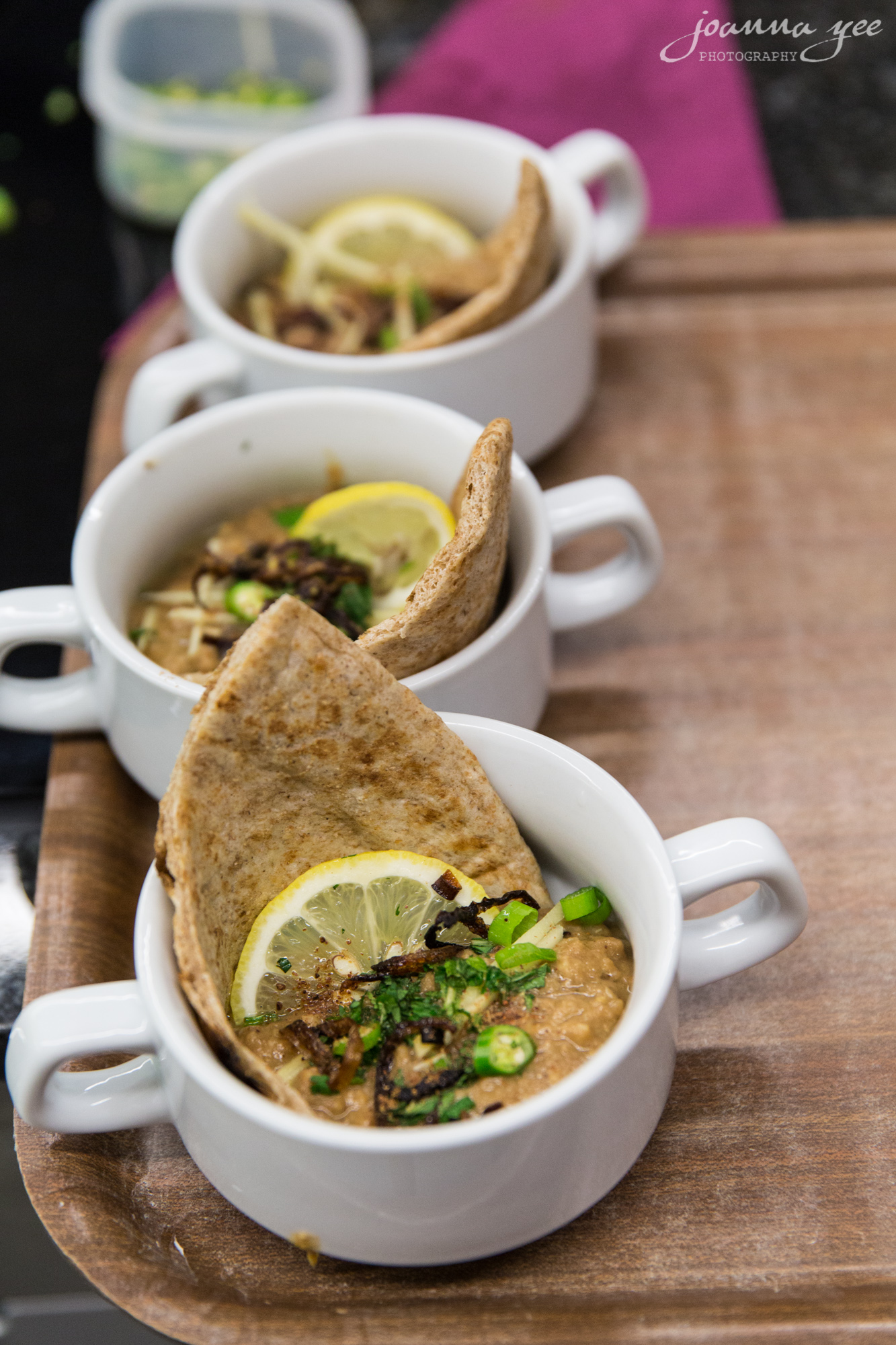Dawwat: a Pakistani feast
The latest Guild of Food Writers workshop, hosted by the fabulous Sumayya Usmani, was an introduction to Pakistan’s food heritage, history and evolution. After moving to the UK eight years ago, Sumayya was shocked to find such a poor appreciation of her native cuisine - something she’s worked hard, through her writing and cookery teaching, to address ever since.
The workshop began with an insight into the sheer variety of food eaten in different regions of the country, reflecting the ethnic and cultural diversity. The history of invasions, its geographical borders, diverse landscapes and extremes of climate have created a culinary melting pot. Pakastani dishes range from Mughlai cuisine developed in the imperial kitchens of the Mughal Empire, to street food and the Indian mainstays more often associated with the subcontinent.
Sumayya described a day typically starting with a breakfast of spiced chickpeas and meat "curry" – although she explained that there is actually no such word in the Pakistani language. Due to the climate lunch is usually fairly light, unless of course it's “biryani day” - the cultural equivalent of fish and chip friday in the UK. The main meal, normally taken late in the evening, is more substantial and followed by seasonal fruits, with desserts eaten at any time of day alongside a cup of Chai. To be honest, this calorific description didn't quite tally with our svelte host, but the point was made - Pakistani's enjoy their food.
The conservative nature of the country, which is alcohol-free for the muslim majority, is one of the key reasons that food is so culturally important. It is, explained Sumayya, the most accessible form of entertainment and plays a central part in every major celebration from birth to death. No-one would be invited to a Pakistani home without an offer of food and when people wish to give thanks they will often do so by cooking up a feast for the poor.
After the talk, it was time to sample the food. One of the defining themes of Pakistani cookery is the use of techniques to build layers of flavour. A simple lamb chop, Sumayya explained, might be treated with an overnight marinade of garlic, ginger, fried onions, lemon and garam masala, grilled on the barbecue for a smokey umami flavour and then served with a light sprinkling of lemon juice, garam masala and fresh coriander. She then demonstrated some examples of these age-old cooking methods through a traditional tasting menu, or Dawwat (“Feast”).
To get everybody in the mood, a Sindhi-style welcome drink of spice-infused almond milk was followed by a starter of paneer and pomegranate samosas with chillied black chickpeas.
Beef Haleem, often eaten during Ramadan, was slow cooked until the spices, meat, lentils and wheat had melted into a delicious homogenous paste. Along with green daal, this was used to demonstrate tempering (tarka) where whole spices are infused in hot oil and mixed in to a dish at the start or end of cooking.
After cooking a classic Keema, ghee was poured over a lit charcoal briquette to lightly smoke the meat. Sumayya explained that this simple technique, "dhunai", is often used to impart a BBQ flavour to Pakistani food – although, she admitted, it should probably not be practised in close proximity to a smoke alarm.
Finally, dumm, the traditional Persian method of cooking under steam, was demonstrated through a delicious green chicken biryani. This resulted in a fantastically moist and flavoursome main course, served with an extra helping of useful tips – wash and soak your rice to remove excess starch; infuse the dish with aromatics such as lemon, mint leaves and whole chillies; and drizzle over saffron water, melted ghee and kewra (screw-pine water) for a really authentic flavour.
To ensure everyone went home happy we were all treated to Qawwami Seviyan, a sweet vermicelli dessert made with sugar, milk, saffron, fruit and nuts infused with cardamom and topped with rose petals. Judging by the smiles, this seemed to do the trick and capped off a fascinating, and extremely tasty, introduction to Pakistani cuisine.
*A massive thank you to Joanna Yee for all of the pictures in this post. Enjoy Noma!








